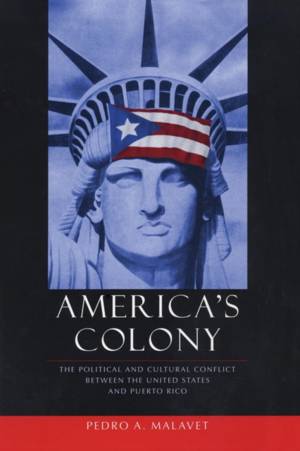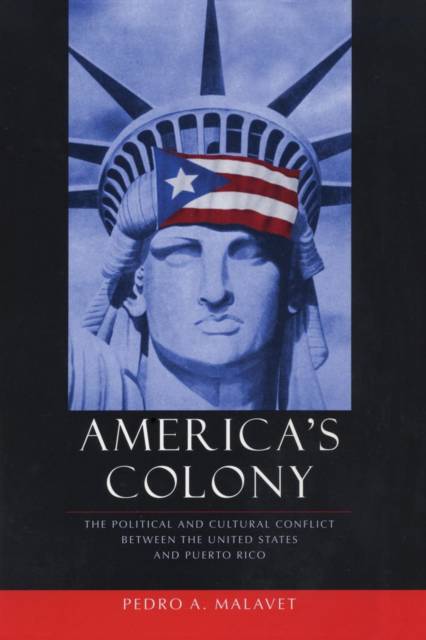
- Retrait gratuit dans votre magasin Club
- 7.000.000 titres dans notre catalogue
- Payer en toute sécurité
- Toujours un magasin près de chez vous
- Retrait gratuit dans votre magasin Club
- 7.000.0000 titres dans notre catalogue
- Payer en toute sécurité
- Toujours un magasin près de chez vous
America's Colony
The Political and Cultural Conflict Between the United States and Puerto Rico
Pedro A MalavetDescription
The precise legal nature of the relationship between the United States and the people of Puerto Rico was not explicitly determined in 1898 when the Treaty of Paris transferred sovereignty over Puerto Rico from Spain to the United States. Since then, many court cases, beginning in 1901, have been instrumental in defining this delicate relationship.
While the legislation has clearly established the nonexistence of Puerto Rican nationhood and lack of independent Puerto Rican citizenship, the debate over Puerto Rico's status continues to this day.
Malavet offers a critique of Puerto Rico's current status as well as of its treatment by the U.S. legal and political systems. Puerto Rico is a colony of the United States, and Puerto Ricans living on this geographically separate island are subject to the United States's legal and political authority. They are the largest group of U.S. citizens currently living under territorial status. Malavet argues that the Puerto Rican cultural nation experiences U.S. imperialism, which compromises both the island's sovereignty and Puerto Ricans' citizenship rights. He analyzes the three alternatives to Puerto Rico's continued territorial status, examining the challenges manifest in each possibility, as well as illuminating what he believes to be the best course of action.
Spécifications
Parties prenantes
- Auteur(s) :
- Editeur:
Contenu
- Nombre de pages :
- 242
- Langue:
- Anglais
- Collection :
- Tome:
- n° 43
Caractéristiques
- EAN:
- 9780814757413
- Date de parution :
- 01-11-07
- Format:
- Livre broché
- Format numérique:
- Trade paperback (VS)
- Dimensions :
- 155 mm x 228 mm
- Poids :
- 403 g

Les avis
Nous publions uniquement les avis qui respectent les conditions requises. Consultez nos conditions pour les avis.






